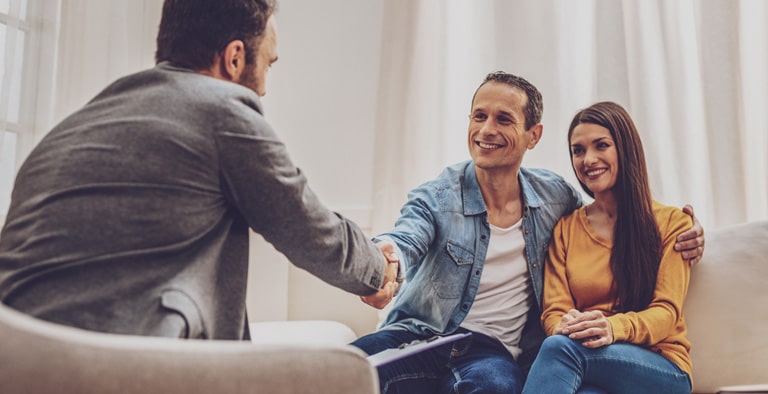7 Tips on How to Prepare for Couples Counseling
Whether you’ve been with your partner for a year or a decade, issues can arise in your relationship. How you handle these problems is the true sign of your strength as a couple. If you and your partner are struggling to resolve conflict or maintain your connection, you might decide to try couples counseling. Therapy is a powerful way to address your challenges and learn to better support one another.
As your first counseling session grows closer, you might start to feel anxious, stressed, or hesitant. These nerves are normal, but knowing what to expect in couples counseling can help to put your mind at ease.
Here Are Seven Tips for How to Prepare for Couples Counseling
1. Make Sure You’re Ready
Before you and your partner commit to couples counseling, you should ensure you’re both ready for the process. Couples counseling only works if both partners are willing to put in the work. No matter how certain you are that counseling is the answer, you can’t force your partner to participate. It’s okay for one partner to feel more reluctant than the other, but both need to be genuinely willing to try.
2. Identify Your Goals
Understanding your goals before you begin couples counseling can be very helpful. Your therapist cannot simply fix your relationship if you aren’t able to dig deep into what’s wrong. In many cases, couples who start counseling can’t precisely identify where their relationship took a turn. Your couples therapist will work with you and your partner to identify specific goals, but approaching your first session with some goals in mind can help the process.
You and your partner could discuss your goals together before your first couples counseling session. Identifying your shared goals can help you feel more aligned during the process and can ease your nerves before you meet your therapist. Here are some of the most common goals addressed in couples counseling:
- Improve conflict resolution skills
- Learn to compromise
- Better understand each other
- Develop stronger sense of empathy
- Increase intimacy
- Plan for major life transitions
3. Keep an Open Mind
Approaching couples therapy with an open mind is essential for both you and your partner. Counseling can feel extremely vulnerable, so nerves are to be expected. However, it’s important that you let go of any stigma you may hold about couples counseling. By normalizing the experience for yourself, you’ll reduce any guilt or shame you feel about seeking therapy.
People often think that couples counseling is only for relationships that are on their deathbed. You may tell yourself that you should have been able to work out your issues on your own or that you’re crazy for going to therapy. In reality, though, couples counseling is a very normal and common solution to relationship problems. More people have worked with a couples therapist than you might think, and there’s absolutely nothing to feel ashamed of. Allow yourself to embrace the process, and be proud of yourself that you’re taking the necessary steps to heal your relationship.
4. Set Privacy Expectations
Before your first counseling session, you and your partner should have a discussion about your privacy expectations. Your therapy sessions are confidential, so your counselor would only disclose the information you share if they believe that someone is in danger. You and your partner must also set expectations for what you will or won’t share with the people in your lives.
Some people are open about attending couples counseling and have no issue sharing their experiences with their friends or family. Others prefer to keep the topic private. You and your partner should set clear rules and boundaries for what you’re comfortable sharing with other people. Respecting your partner’s wishes for privacy is vital for maintaining a sense of safety and respect in the therapy session.
5. Complete Paperwork
Like with any healthcare appointment, your couples therapist will probably send you some paperwork before your first session. You might have to fill out insurance information, consent forms, and HIPAA acknowledgements. If you complete this paperwork ahead of time, you can jump right in during your first meeting with your therapist. However, you should always reach out to your counselor if you have any questions about the paperwork. It’s important that you and your partner are both fully informed on what the process will entail.
6. Take Time After
If possible, you and your partner should clear your schedules after your first couples counseling session. The two of you are approaching therapy as a team, so taking the time to reflect together after your first session will help the process. Therapy is an emotional experience, and leaving time to rest and recharge is an excellent form of self-care.
After the session, you and your partner could discuss what emotions came up during the conversation. You can ask yourself if you actively listened to your partner and if you feel like you made progress during the session. Therapy is an ongoing process, so you probably won’t have a major breakthrough during your first appointment. Taking the time to reflect can set you on the right track, though.
7. Allow Yourself to Be Nervous
Knowing how to prepare for couples counseling can reduce your nerves, but some amount of stress or anxiety is always expected. You’re opening up about the most vulnerable elements of your relationship, which can feel uncomfortable at first. Being nervous is a sign that you care. Allow yourself to feel your nerves, and feel free to disclose that you’re anxious to your therapist.
Your first experience with couples counseling can be stressful, emotional, and invigorating. By scheduling your appointment, you and your partner have already made a valuable step toward strengthening your relationship. Embrace all of your emotions as you prepare for the session, and don’t hesitate to reach out to your counselor if you have any questions or concerns.
Menachem Psychotherapy Group offers counseling for couples who are ready to address the issues in their relationship and grow closer together. Contact us today to schedule an appointment with a couples therapist in Los Angeles.




